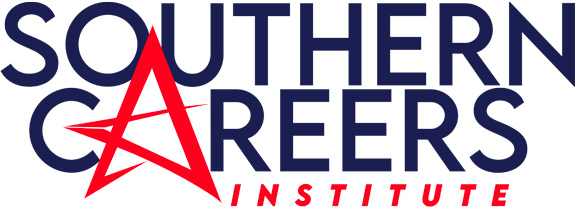With the rapid pace of the technological revolution, new industries and lines of work are emerging every day. Data science is one of the most promising tech career fields today, with solid job prospects. Companies and organizations worldwide are turning to data scientists to make sense of available data and use them in tackling complex operational issues.
If you fancy a data science career but aren’t sure where to start, our comprehensive guide below is a great place to get started.
Who is a data scientist?
A data scientist is a tech specialist who leverages data to understand and explain operational trends and help organizations make better decisions. Data scientists collect vast amounts of data, which they analyze and interpret before presenting to stakeholders in reports and visualizations. Data science is a technical field that requires various technical skills, including:
- Knowledge of statistical analysis
- Machine learning and deep learning skills
- Great arithmetic skills
- Programming background
- Data visualization skills
- Software engineering
5 tips to becoming a data scientist
The following are critical steps to becoming a data scientist:
Get a professional certification in data science
One of the most critical steps to becoming a data scientist is to acquire a relevant academic qualification. Although it is not a requirement, many employers love to see some academic credentials that ensure you have the skills to handle your duties competently. Whether it is a bachelor’s degree, a diploma, or a certificate, a data science course equips you with the skills and training you need to navigate the nuances of the data industry. With that in mind, a related bachelor’s degree can also help. Having a background in statistics or computer science and related fields can give you an edge over your competition.
Improve relevant hard skills
As mentioned earlier, data science is a highly technical field that requires hard data skills. If your hard skills are not up to par, consider taking a relevant online course or enrolling in a technical boot camp. The following are some of the skills to prioritize:
- Programming languages: As a data scientist, you will leverage various programming languages to analyze, interpret and manage massive chunks of data. Some of the common programming languages to have under your belt include Python, R, SQL, and SAS.
- Machine Learning: Deep knowledge of machine learning can enhance the quality of data you collect and improve your prediction of future dataset outcomes. Enrolling in a short course in Machine Learning can be a great starting point.
- Data visualization: Creating charts and graphs is among the everyday responsibilities of a data scientist. Familiarity with data visualization tools such as Excel, PowerBI, and Tableau will make you more attractive to employers.
- Big data: Some employers may ask for skills related to big data. Having experience with some software frameworks used to process big data will be helpful. Take time to understand how tools such as Hadoop and Apache Spark works.
- Communication skills: You need excellent communication skills to present your findings to stakeholders. The ability to share ideas and results clearly in written and verbal forms is a crucial skill for data scientists.
Work as an entry-level data analyst
Although there are myriads of paths to becoming a data scientist, getting an entry-level data analytics job is often an excellent foundational step to a thriving career. The job allows you to put classroom knowledge into practical use while equipping you with the skills and experiences you need to work your way up. Some of the positions that work heavily with data include:
- Statistician
- Data Engineer
- Business intelligence analyst
- Data analyst
Network widely
Establishing a collaborative relationship with other data scientists is an easy way to stay on top of different career opportunities and industry trends. You will also identify the prospects that appeal to you and how to prepare adequately for the job application process. When starting out without much experience, consider targeting smaller companies with entry-level programs. You should also consider working as an intern in a reputable organization offering entry-level jobs.
Prepare for data science interviews
With some years of experience working as a data analyst, you might feel ready to enter the data science industry. When applying for data science jobs without experience, include a short summary section on your resume explaining your shift. Leverage appropriate keywords to list the courses you have taken, the technical languages you specialized in, and any projects you have undertaken. Once you have secured an interview, research common interview questions and prepare for the interviews.
What are some of the data science job opportunities?
There is a myriad of data science job titles advertised each day. While some of these roles overlap, others have additional responsibilities based on the employer’s needs to which you are applying. The following is a list of top data science job titles to help you navigate job postings:
- Data scientist: Data scientists are the jacks of all trades who deal with all aspects of the project, including data collection, analysis, visualization, and presentations.
- Date analysts: Data science and data analysis may overlap. Don’t be surprised if a company hires you as a “data scientist” when most of the responsibilities you will be undertaking fall under data analysis. Data analyst roles include visualizing, transforming, and manipulating data.
- Data Engineer: Data engineers designs, builds, and manage data pipelines. They also test and customize business ecosystems to allow data scientists to run algorithms.
- Data architect: Data architects ensure accurate formatting of data to guarantee easy access for data scientists and analysts. They work in collaboration with data engineers to enhance data pipeline performance.
- Data storyteller: Data storytelling is often confused with data visualization. Although they may share some elements, the two have distinct differences. Apart from visualizing data and creating reports, data storytellers use creative ways to describe the data best and express the narratives.
Get started with Southern Careers Institute’s Data Science Program
Working as a data scientist is often an intellectually stimulating and satisfying career that places you at the forefront of new technological advances. As big data continues to straddle many industries and niches, data science has become the key skill, with many organizations relying on data scientists to make crucial decisions. Southern Careers Institute (SCI) can help train on the skills needed to pursue a career in data science through our online Data Science program. For over 60 years, we have provided our students with high-quality employer-tailored programs to help them launch successful careers. Contact us today to seek more information about the online Data Science program offered at SCI.
This article was published on: 07/26/23 3:25 PM
* SCI does not guarantee employment or a starting salary upon graduation, completion, or withdrawal from SCI. As an accredited post-secondary institution, SCI has various federal financial assistance programs available for students who qualify and are enrolled in SCI programs. This does not apply to seminar students.
GI Bill® is a registered trademark of the U.S. Department of Veterans Affairs (VA). More information about education benefits offered by VA is available at the official U.S. government Web site at http://www.benefits.va.gov/gibill.

